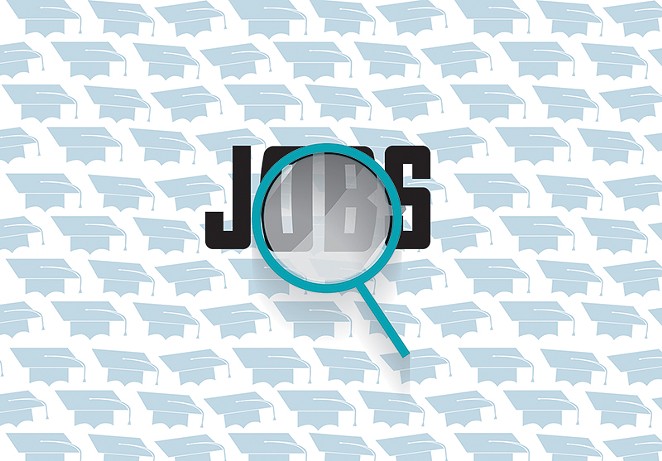Drunk with joy, students skip across the stage completing the arduous process of earning an education. In today's market, however, finding a job can be a bit of a buzz-kill following graduation happiness.
Abreetta Goode, career services counselor at the University of Incarnate Word, recommended that students get a head start. She says beginning early gives students time to gain work experience and develop an informed understanding of the workforce.
Business is one of the most popular majors at UIW. Goode explained that a business degree allows students to branch into many different fields. For example, with an accounting specialty a counselor may recommend the student become a licensed certified public accountant, or CPA.
Other job options for business majors may include entry-level positions, a corporate marketing firm, a nonprofit or consulting.
Typically, it takes three to nine months and easily dozens of applications after graduation to get through the career
search process.
For Rebecca Rutledge, associate director for career development at St. Mary's University, the most important element to finding a job after graduation is networking. "People hire people," Rutledge explains, "finding a job is 20 percent resume and 80 percent networking."
Specific advice for students, Rutledge says, depends entirely on the student's involvement on campus and their efforts in
the classroom.
The most popular major at St. Mary's is biology. These students have several routes they may take toward a career. Students with great grades may be asked to help in faculty research or as lab assistants, opportunities that offer excellent experience for graduate school or teaching positions.
On the other hand, some biology majors aspire to help people in the medical field. Counselors may recommend these students volunteer in hospitals and find medical scribing positions.
Rutledge tells students it is a must to understand their field via job shadowing and internships before they move toward a job. Of St. Mary's undergrad and graduate students, 60 to 70 percent visit the career center throughout their time at
the university.
Most career counselors would love to see students coming in freshman year, says Katie Ramirez, Trinity University's assistant director of coaching and advising.
Mainly working with students obtaining a degree within the humanities, Ramirez says students often forget to ask themselves: "What am I good at?"
A skill set is an essential factor when looking for jobs. "The student's major does not equal a career," Ramirez explained. Having a wide array of skills opens opportunities that the student did not originally know about.
To further her point, Ramirez said that sometimes her humanity majors find jobs in business analytics. Or an English major may end up at an accounting firm.
For Trinity, being open to any and all opportunities provides the foundation of advice for career counselors. According to Ramirez, more often than not, "Your dream job doesn't come right out of school."
Most seniors at the university will start applying for jobs in January and come March and April, most students will already have job offers. Ramirez says some hiring and recruiting takes place even earlier.
No matter what your major, interests or plans, jobs are out there for you. Start early, get experience, and then apply for those jobs!















